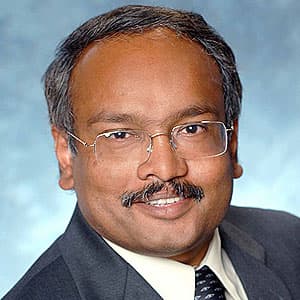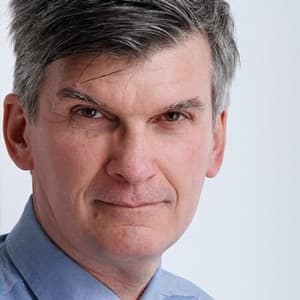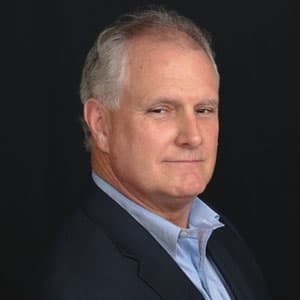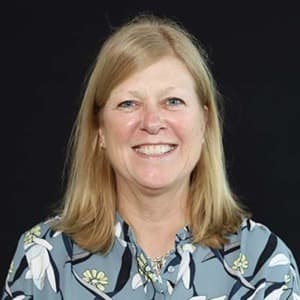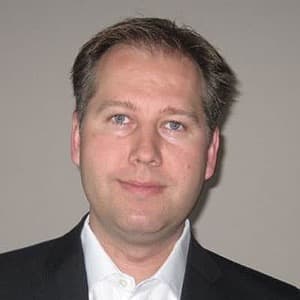The Blog
BBC Interview Series: Raj Ramesh at TopSigma
BBC 2017 Speaker Series – Consultant: Raj Ramesh
In anticipation of his presentation at Building Business Capability in Orlando, Nov. 6-10, 2017, we asked Raj Ramesh, President at TopSigma, a few questions about transforming the business. Check out this interview in relation to his BBC presentation entitled, How Artificial Intelligence Can Fundamentally Change Your Business.
Q: In what ways do you help your client organizations handle business transformation?
A: There are two things I keep in mind for large scale business transformation. One is structure – to be systematic on the approach. The other is comprehensiveness – to consider all the factors that’ll have an effect on successful transformation. For successful transformation, which is a continuous journey anyway, you have to be clear about where you are, where you want to go, and iterate. This is analogous to identifying a travel destination and taking the journey. Along the way you may change your destination, but you have to be clear on where you are going at any point in time. I help clients by helping the paint that picture – of their current state, their future state, and the transitional states they need to go through to get there.
Q: Can you describe the challenges you face or have already overcome in establishing more robust business transformation capabilities for your clients?
A: One of the major challenges in transforming capabilities is to first identify which capabilities to focus on in the first place. While there is a desire to enhance everything, no company has the resources to do that. One of the major challenges I often encounter is to help the client identify the capabilities that provide their competitive advantage, those that are important and those that can be outsourced.
Q: What are your top suggestions for companies looking to become more agile?
A: I believe that “agile” is a mindset – and mindsets take time to change. However, it can be done and it’s never too late to start. Most companies have a fear of failure, but that’s the great thing with the agile mentality. Failure is factored in. If things don’t work, adjust accordingly. However, the organization should be open to failure and be willing to take calculated risks.
Q: What’s the most valuable thing you’ve learned in the past year?
A: Big problems cannot be solved in isolation. All stakeholders and functional areas have to be involved, but at the same time, full consensus building will slow things down to a crawl, losing agility. There has to be a good balance between consensus and quick decision making. People in your organization who can enable consensus and collaboration have a unique skill which should be leveraged well, and they are the change agents that should be sprinkled throughout the organization.
Q: What do you see as the most important goal or trend for business analysts and other professionals to keep in mind?
A: The future is moving towards being more data-centric. All professionals, especially business analysts and architects need to get comfortable with data. Data will become the foundation of most agile organizations, as we see with Amazon for example. Areas such as Artificial Intelligence (AI), IoT, Blockchain, etc. exploit data. So, the key is to be able to integrate data and disruptive technologies in the fabric of the organization, with an eye towards fulfilling business needs while providing remarkable customer experiences.
Q: What’s the latest method/process/tool you’ve implemented to help your client’s business’s operate more effectively? Have you seen any results yet?
A: Some of the larger organizations are moving towards a holistic “frame of mind.” By this I mean, people starting to think about innovation, architecture, agility, customer-centricity – all essentially with the focus to provide customers remarkable experiences. With this frame of mind, different tools are being selected and used. The actually tool matters less than the thinking behind the tool. As an example, if one understands and leverages the concept of relational data, then the actual tool used to implement this relational data is less critical in most circumstances.
Having a digital mindset is one such paradigm. I have seen very good results when people shift their mind to thinking with this paradigm. The digital mindset is not just about machines or UIs either. It includes the user experience of interacting with those systems you are building, and it includes the people in the digital process who have to do their part, to make everything work seamlessly. I have seen and am seeing positive change in organizations where this mindset starts from one unit and spread across other areas. Top-down “you shall do this” dictates are less successful unless executed with care, in my experience.
Q: If you could go back 5 years in time and give some professional insight or advice to yourself, what would it be?
A: We are architects and analysts, myself included, have to focus more on the people aspects of our job. Yes, technology and processes are enablers of how work gets done, but if you don’t bring people along the transformation journey, it is become a difficult exercise. If I could go back in time, I would spend more time focusing on learning more about emotional intelligence and people skills, relative to the technical and business skills that I have acquired over those years.
Q: What’s one question you wished you were asked in this interview but were not? And how would you answer?
A: The question is, “How do you yourself adapt to change?” We all know that the world is changing fast. What I studied 5 to 10 years back is mostly outdated now. New technologies, approaches, ways of thinking, etc. are being introduced every day. In addition to writing and speaking, I have to keep up with the times by constantly educating myself. I spend a considerable amount of time reading to keep my hand on the pulse of change. The interesting thing about learning is that even though some of the knowledge and techniques may be outdated, the foundational principles behind those often still stay.
Obviously, it is impossible to read all the literature and articles that’s being published every day, which is why attending conferences like the BBC is critical. It helps you to connect with peers and get a sense for where things are headed.
Q: Sneak preview: Please tell us a take-away that you will provide during your talk at the Building Business Capability (BBC) conference this year?
A: As I mentioned earlier, data and cognition is driving the future of business. I hope to convince you, the audience, of this huge trend, share some examples of how things are changing, and provide some insights into how we should prepare ourselves for the future.
Just like we are helping organizations transform, we as analysts and architects should realize the implications of how the trends will affect and impact our own jobs, and be prepared. There is so much opportunity – we just have to position ourselves with the right skills so we can influence the outcomes of organizational transformation to an even greater extent.
Specifically, I will provide an introduction to the hot field of AI, share some real-world examples, and discuss how it can be integrated into the organization. As AI is introduced, its impact is not restricted to the local business process it becomes part of. Rather I’ll share an example of how AI can fundamentally impact organizational strategy.
—————————–
Don’t miss Raj’s presentation, How Artificial Intelligence Can Fundamentally Change Your Business, at Building Business Capability on Friday, November 10, 2017 from 10:20 am to 11:20 am. Click here to register for attendance.
2018 Program
Connect
Building Business Capability is the only conference that provides insight into Business Analysis, Business Architecture, Business Process, Business Rules, Business Decisions, and Business Strategy & Transformation toward the pursuit of business excellence.
STAY CONNECTED
Event Produced and Organized by Rising Media in association with Business Rule Solutions Copyright © 2010-2018, Rising Media, Inc. All Rights Reserved.

